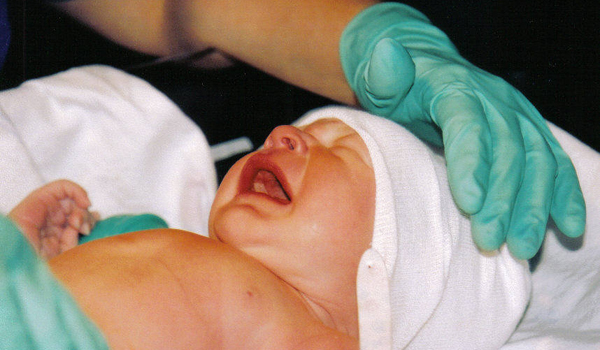Autism 5 Times More Common Among Low Birth Weight Babies

Get the world’s most fascinating discoveries delivered straight to your inbox.
You are now subscribed
Your newsletter sign-up was successful
Want to add more newsletters?

Delivered Daily
Daily Newsletter
Sign up for the latest discoveries, groundbreaking research and fascinating breakthroughs that impact you and the wider world direct to your inbox.

Once a week
Life's Little Mysteries
Feed your curiosity with an exclusive mystery every week, solved with science and delivered direct to your inbox before it's seen anywhere else.

Once a week
How It Works
Sign up to our free science & technology newsletter for your weekly fix of fascinating articles, quick quizzes, amazing images, and more

Delivered daily
Space.com Newsletter
Breaking space news, the latest updates on rocket launches, skywatching events and more!

Once a month
Watch This Space
Sign up to our monthly entertainment newsletter to keep up with all our coverage of the latest sci-fi and space movies, tv shows, games and books.

Once a week
Night Sky This Week
Discover this week's must-see night sky events, moon phases, and stunning astrophotos. Sign up for our skywatching newsletter and explore the universe with us!
Join the club
Get full access to premium articles, exclusive features and a growing list of member rewards.
Babies born with low birth weights are five times more likely than the general population to be diagnosed with some form of autism, new research suggests.
The study is the first in the United States to look at the prevalence of autism diagnoses in the smallest babies. Advances in medical science have helped more lower birth weight babies survive, so the findings could help explain the increase in people diagnosed with autism disorders, the researchers said.
Premature babies are often born with low birth weights, though full-term babies can also have the condition.
Researchers from the University of Pennsylvania School of Nursing and School of Medicine identified 1,105 children who weighed less than 4 pounds, 6.5 ounces (2,000 grams) at birth who were born between Oct. 1, 1984, and July 3, 1989.
Sixteen years later, researchers were able to reach 623 of those children, and used a questionnaire to screen them for autism spectrum disorders.
When 189 of the children turned 21 years old, 60 percent of those who screened positive for an autism spectrum disorder, and 24 percent of those who screened negative, were clinically diagnosed with the condition. All in all, the rate of autism spectrum disorders among the study participants with low birth weights was five times higher than the general population.
Autism spectrum disorder difficulties
Get the world’s most fascinating discoveries delivered straight to your inbox.
People with the disorders have difficulty communicating, difficulty interacting in social situations, and restrictive or repetitive interests, said study co-author Jennifer Pinto-Martin, a researcher with the University of Pennsylvania School of Nursing and School of Medicine.
Those with mild autism spectrum disorders, such as people with Asperger's syndrome, "may only want to talk about one subject," Pinto-Martin said. "They're perfectly functional. They can go to college. They can hold a job."
Lower functioning people with autism spectrum disorders may have no social interactions at all. "You may see them sitting in a corner, rocking back and forth," Pinto-Martin said.
Researchers think that brain hemorrhaging or bruising associated with low birth weight or premature babies could explain the higher rate of autism spectrum disorders.
"Our first hypothesis is that it's related to brain development," Pinto-Martin said. "Preemies have something called neonatal brain injury. In some cases, it's just like a bruise and there is really no consequence. In other cases, there is more of a long-term effect."
Medical interventions that keep premature babies alive could also play a role, Pinto-Martin said. "To keep them alive, there is a lot of technology involved," she said. "They have them on machines that help them breathe. They have them on lots of medications."
"The rate of premature birth and premature survival has gone up dramatically," she continued. "It may well be that, because we are better and better at keeping these preemies alive, we are contributing to the increased prevalence of autism."
Could better prenatal care reduce autism's prevalence?
The research confirms what physicians have known about premature birth and autism, said Dr. Craig Erickson, chief of the Christian Sarkine Autism Treatment Center at Indiana University School of Medicine. Autism can likely develop when premature birth combines with other factors such as environment and genetic predisposition, he said.
"It's not surprising that autism would be a risk factor," he said. "The nice thing about this study is that they had a long follow-up period. By [21 years of age] you really know if people have autism or not."
Next, researchers hope to compare brain images of those low birth weight babies in the study. Head ultrasounds are now routine for premature babies, Pinto-Martin said. "The first thing we're doing is to go back and look at the rate of brain injury and brain hemorrhage in the entire cohort," she said.
The research suggests a need not only for better prenatal care to reduce the number of premature babies, but also a need for early diagnosis and intervention for people with autism. "Some of these young adults thanked us when we gave them the diagnosis," Pinto-Martin said. "They said, 'I always felt odd and I never knew why.' That was very moving for us."
Pass it on: Babies born with low birth weights could be more likely to have some form of autism. Better prenatal care and early diagnosis and treatment could help reduce the impacts.
This story was provided by MyHealthNewsDaily, a sister site to LiveScience. Follow MyHealthNewsDaily on Twitter @MyHealth_MHND. Find us on Facebook.
 Live Science Plus
Live Science Plus










